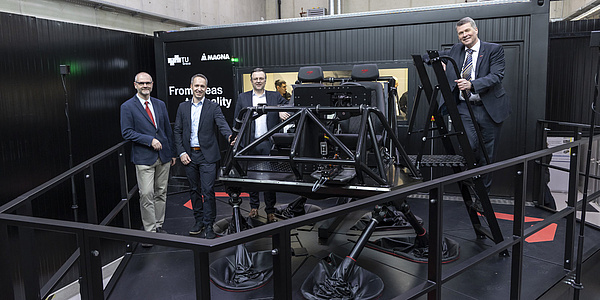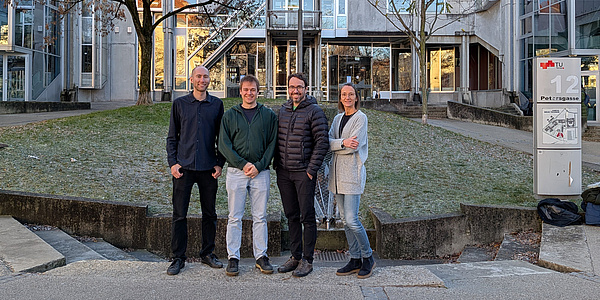Machine learning: Starting Signal for Graz Center for Machine Learning (GraML)

Artificial intelligence and machine learning are becoming one of the most important tools of the future. “Machine learning will change our world just as the internet and computers have done,” says a convinced Robert Legenstein. He heads the Institute of Theoretical Computer Science at Graz University of Technology (TU Graz) and recently also the new Graz Center for Machine Learning.
TU Graz has established this research network, known as GraML for short, in order to significantly advance the further development of machine learning. Interdisciplinary work is being done on the further development of machine learning – whether to draw efficient and meaningful conclusions from big data, to find the most optimal material combinations or to make the systems themselves one step smarter.
On October 17 2022, GraML will celebrate its kick-off in the Assembly Hall of TU Graz, and representatives of the media are cordially invited. In addition to more detailed insights into the topics and goals of GraML, there will also be a keynote “On robust machine learning for natural and medical imaging” given by Amos Storkey, Professor of Machine Learning and Artificial Intelligence at the University of Edinburgh.
Opening Event | Graz Center for Machine Learning (GraML)
Time: Monday, Oktober 17 2022, 6pm
Place: Assembly Hall of TU Graz, Rechbauerstraße 12, 8010 Graz
Registration requested via graml-event@igi.tugraz.at
All GraML participants will introduce the unique scientific angles of their daily research. The scientific work is divided into six core research areas, which are primarily dedicated to the foundations of machine learning, and several flexible modules. The six GraML core research areas are: Visual Intelligence, Optimization in Machine Learning, Ressource-efficient and brain-inspired Machine Learning, Probabilistic Methods and Causal Models, Recommender Systems and Behavioural Analytics as well as Domain Specialized Machine Learning and Trust. In addition to the core research areas, research will be conducted on the application of machine learning methods to a wide range of domains, with experts from the field of machine learning working closely with representatives from other faculties.
Robert Legenstein talks about neural networks and artificial intelligence in the TU Graz podcast “Talk Science to Me”
More in-depth information on the topic of machine learning can be found in the overview article "Machine Learning: Learning Machines". The research magazine TU Graz research also dedicates a separate issue to "Learning Machines" (click here for the ePaper of issue 2/2021).
What are the TU Graz research centres?
The TU Graz research centres link researchers at TU Graz across disciplines and faculties, aim to pool resources, bring together expertise and make it easier for researchers to work together on important and major challenges. “The centres are a network of different researchers from various institutes and faculties at TU Graz who are conducting research on a common topic,” explains Vice Rector for Research Horst Bischof. “This new initiative is intended to bring together smart minds at TU Graz on one topic, make it easier for them to develop joint ideas and ultimately submit these ideas in the form of projects to funding bodies.” The centres are flexible research associations whose scientific direction is set by a shared research agenda. In addition, there is an external scientific advisory board for each association. The centres have no fixed physical locations, nor are there any budget allocations.
Kontakt
Robert LEGENSTEIN
Univ.-Prof. Dipl.-Ing. Dr.techn.
Leiter des Graz Center for Machine Learning
Institut für Grundlagen der Informationsverarbeitung
Tel.: +43 316 873 5824
robert.legenstein@tugraz.at | GraML@tugraz.at




